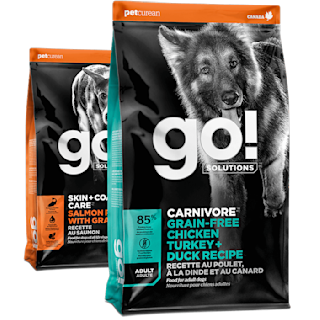January 13, 2023
10 Questions Your Vet Wishes You Would Ask About Your Dog

Taking your dog to the veterinarian once or twice a year for a checkup is part of your job as a responsible pet owner. You know how to care for your dog on a day-to-day basis, but you don’t have the years of education and veterinary experience needed to diagnose and treat health problems. When you go to the vet, you can rest easy knowing that they will give your dog the attention they need but, once you leave the office, it’s up to you to continue that care.
To ensure that your dog remains happy and healthy for as long as possible, you need to be proactive about their care and that means taking advantage of your veterinarian’s knowledge and experience. During each visit to the vet, you should ask the following ten questions to make sure that you have a thorough understanding of your dog’s needs.
1. Is my dog a healthy weight?
More than 50% of cats and dogs in the United States are overweight and many pet parents fail to realize just how serious a health problem obesity can be. A gain of even a few pounds can be significant and increase your dog's risk for chronic health problems such as diabetes, high blood pressure, and osteoarthritis.
Find out what a dog that’s a healthy weight should look and feel like by using our Body Score Chart.
2. Is my dog getting enough exercise? What type of exercise is best?
Exercise is important for helping your pet to maintain a healthy weight but some pets have a lower ability to tolerate exercise than others. Short-snouted dog breeds, for example (like Bulldogs and Pugs), have low exercise tolerance and may overheat easily with vigorous exercise. Your vet can tell you what kind is best for your dog and how much is appropriate.
3. What about my dog's diet?
The quality of your dog’s diet is directly related to their total health and wellness, so it is important that you feed them the best dog food that should be made with healthy, natural ingredients and free from artificial additives.

Recommended Solution
Solutions for Your Pet's Unique Dietary Needs
If your dog is a picky eater, has a dull coat, or food sensitivities, feeding them a solutions-based food may be the answer to many issues.
All Dog Recipes
4. Is my dog up to date on vaccinations?
Discuss vaccination protocols with your vet as some are following newer guidelines, so ask your vet which shots your dog is going to need next and when they are going to need them.
5. Does my dog need parasite/flea/tick protection and which product should I use?
Dogs and cats should both be protected against fleas, ticks, and common parasites like roundworms and tapeworms, even if you think they may have limited exposure. Ticks have the potential to carry deadly diseases, and many parasites can cause serious illness, so it is worth protecting your dog with a routine preventative.
6. Are my dogs teeth healthy?
Many pet parents may be unaware of their dog’s dental health which, unfortunately, can result in the development of a degree of gingivitis or even periodontal disease by the time they are three years old. Your dog should have an oral checkup during each vet visit and you should brush their teeth as often as you can.
7. Does my dog need a blood test or urine test?
Most routine veterinary checkups do not include blood and urine tests unless the dog is showing signs of some form of disease. It never hurts, however, to ask your vet whether one of these tests might be beneficial just to make sure your dog is healthy, because having healthy blood/urine results can be important to compare to, especially for senior pets, or pets who develop an illness.
8. Is [insert behaviour here] normal?
Dogs exhibit some unique behaviours and they aren’t always easy for pet parents to understand. If your dog has recently started to exhibit an unfamiliar behaviour, it’s worth asking your vet to make sure it isn’t a sign of a developing health problem.

9. How can I better care for my dog?
The best question you can ask your veterinarian is how to be a better parent to your dog. There could be something simple that you aren’t doing which might be very beneficial for your dog but you’ll never know unless you ask. These may be simple things, like incorporating wet food to improve hydration.
10. When should I bring my dog back for the next checkup?
Regular veterinary care is the key to catching health problems in the early stages when they are still treatable. As your dog ages, they may require more frequent trips to the vet to ensure they are maintaining good health.
In Conclusion
The more questions you ask your veterinarian, the more knowledge you will gain and that can only help you to become a better pet parent. You need to do more than just ask the questions, however – you also have to put that knowledge to use in caring for your dog.


